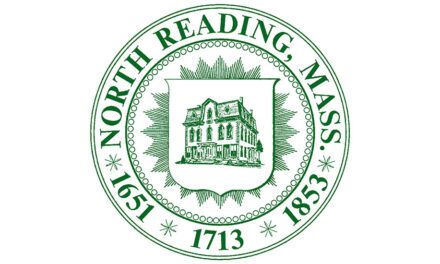Published in the September 17, 2015 edition
NORTH READING – Less than a year after adopting a town bylaw restricting the locations where registered sex offenders can live, Town Meeting voters will be asked to repeal the law in October.
As the Transcript reported last week, a recent decision by the Mass. Supreme Judicial Court overturning a similar ordinance in Lynn makes North Reading’s bylaw problematic. The SJC ruled that cities and towns cannot ban sex offenders from living near parks and schools and struck down the Lynn law that had been in effect since 2011.
North Reading’s bylaw was passed by Town Meeting last October and approved in January by the Attorney General’s office. But in an unusual move, the AG’s office attached a significant number of caveats to its approval, essentially saying the law, and others like it passed by other communities, may be vulnerable to future legal challenges.
At the time, the AG’s office cautioned the town that “no Massachusetts appellate court has yet reviewed sex offender restrictions similar to that which North Reading has adopted” and since the state constitution puts greater restrictions on the exercise of police powers than the U.S. Constitution, “it would be possible for sex offender restrictions to be affirmed under the federal Constitution, but struck down under the Massachusetts Constitution.”
That warning turned out to be prophetic when the SJC overturned Lynn’s law a couple of weeks ago, comparing it to past discrimination against Native Americans and Japanese Americans.
In light of the SJC’s unanimous decision, Town Administrator Michael Gilleberto said, it is the recommendation of Town Counsel that North Reading’s bylaw be repealed. There are no plans for a replacement bylaw at this time, Gilleberto said.
North Reading’s bylaw is very similar to Lynn’s but also differs in several ways.
Lynn’s law banned Level 2 and Level 3 sex offenders, (those with a high or moderate risk of reoffending), from living within 1,000 feet of a school or park in the city. The court found this effectively banned those offenders from 95 percent of that city’s housing, forcing them into other cities and towns.
North Reading’s bylaw limits where “finally classified” Level 3 sex offenders can establish permanent residence (defined as 14 consecutive days or more) in relation to an elderly housing facility, school, daycare center or school bus stop.
For elderly housing, schools, daycare centers and parks, Level 3 sex offenders are prohibited from living within 1,000 feet under North Reading’s bylaw. The restricted area drops to 250 feet for school bus stops. There are about 400 school bus stops in town and they can change from year to year.
Under North Reading’s bylaw, Level 1 and Level 2 sex offenders are not affected and a Level 3 sex offender would not be affected by the law if the church, school, park, elderly housing, park, daycare facility or bus stop is established after the sex offender establishes permanent residence in town.
The Selectmen voted 3 to 1 to recommend that Town Meeting repeal the sex offender law. Kathryn Manupelli was absent and Michael Prisco voted in opposition.
Prisco said he disagreed with the court decision and wanted to send “a small message.”
Selectman Stephen O’Leary noted the SJC’s decision to overturn the Lynn law does not make any changes to the Mass. Sex Offender Registry or its requirements. For instance, sex offenders must still register and notify police where they live. O’Leary said he reluctantly voted to recommend the law be repealed because the town can’t enforce it.
North Reading is one of 49 cities and towns with ordinances or bylaws restricting where sex offenders can live. According to the state, there are 2,642 Level 3 and 6,115 Level 2 sex offenders in Massachusetts. Some supporters of the sex offender restrictions have vowed to lobby the governor and the state Legislature to pass statewide residency rules.



